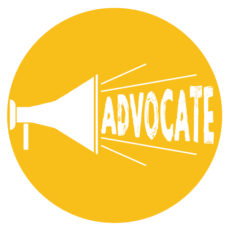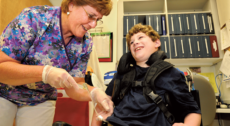What are the ABLE savings limits for 2019? ABLE accounts are protected savings opportunities for people who have a significant disability with an onset prior to age 26. For 2019, friends and family can contribute up to $15,000 directly into an ABLE account. ABLE account owners who work, and do not have an employer- sponsored retirement account, may save up to $12,140 in additional savings from their earnings. Can I save income within ABLE to […]
Category: Featured Topics
How to Choose a Clinician to Evaluate for ASD
So you have concerns that you or your child may have Autism Spectrum Disorder (ASD). What should you do? Who can you turn to? How do you find out for sure? The only way to know for sure is to have an evaluation by a doctor or other clinician with experience with ASD and with other related conditions that may look similar to ASD. It is probably a good idea to contact two or three clinicians […]
Smoking Among Adults with Disabilities: Why It’s a Big Problem
Smoking is one of the most dangerous things you can choose to do, and it affects people from all walks of life. Although you might not expect it, adults with disabilities are particularly likely to smoke. Understanding why that is and finding out what we can do to help is essential to creating a smoke-free society. Smoking is responsible for almost 1 in 5 deaths in the U.S., and is the leading preventable cause of […]
Becoming A Family Advisor: Are you a parent that wants to advocate for change?
As a parent you have much to offer, teach, and share. You bring unique experiences, perspectives, and expertise. Everyone benefits when families and providers work together to improve healthcare, education, and community life for children with special health and/or developmental needs. We hope to give you general information and guidance on what’s involved in becoming an effective family advisor, no matter what setting you choose. A family advisor is a parent or other family member who […]
11 Things to Know about Cerebral Palsy
Cerebral palsy (CP) is the most common motor disability in childhood, and children with CP and their families need support. Learn more about CP and what signs to look for in young children. Cerebral palsy (CP) is a group of disorders that affect a person’s ability to move and maintain balance and posture. CP is the most common motor disability of childhood. About 1 in 323 children has been identified with CP according to estimates […]





